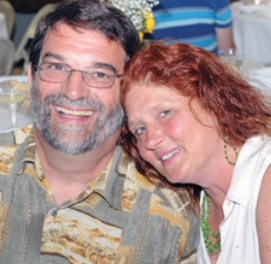 Deana Weaver
Deana Weaver
Pennsylvania Senate
Harrisburg
April 15, 2015
Thank you for welcoming something different into your day. It is an honor for a constituent to be given a voice before this governing body.
In recent months, religious beliefs have been at the forefront of a heated national debate.
We are fortunate to be citizens of the country founded and formed to recognize the importance of the individual, where no one shall be made to hide, or justify, his or her personal beliefs, and where no government shall impose a singular religion on its citizenry.
Where there are misunderstandings, we may engage in conscientious and respectful dialogues to assuage fears. I am humbled to represent a portion of your diverse constituency. This raises the question, can atheists pray?
A prayer can be meditative — seeking the inner strength to face difficulty and challenge.
A prayer can be solicitous — seeking to bring a benefit or relief of tribulation to oneself, a loved one or to strangers.
A prayer can be a direct appeal to a higher power. So, let us pray
That we may use our power to lead with compassion and understanding.
That we remain tolerant of others, regardless of differences in religious beliefs, gender, race and sexual or political orientation.
That we treat one another as we wish to be treated.
Let us pray for open minds, and for the strength to overcome preconceived judgments. Let us learn daily and consider wisely.
Let us be mindful of our one diverse human family with common values and needs.
Let us work toward clean air and water, safe neighborhoods, strong schools and a viable economy with sustained employment opportunities.
Let us provide for well-trained and equipped firefighters, emergency responders, police and military. Let us never forget their sacrifices.
As we forge ahead, toward the common good of community, may we all benefit from the enduring power of diversity.
Thank you.
Deana Weaver, a member of the Dillsburg, Pa., Area Freethinkers, was raised in a Methodist household “but by age 14 recognized hypocrisy and social attitudes of which I no longer wanted to be a part. I volunteered as a hospital candy striper on Sunday mornings to avoid my parents’ church attendance requirement.”
Her parents signed a waiver allowing her to enlist at age 16 in the U.S. Army. She left for active service after high school graduation in 1977, serving for four years and for 10 years in the Army Reserves.
Deana said she has pleaded with lawmakers “to refrain from applying their personal religious beliefs to legislation — very frustrating conversations.”

